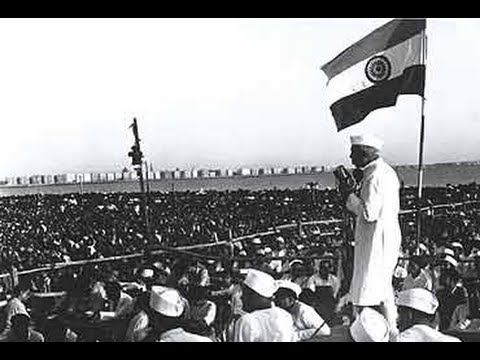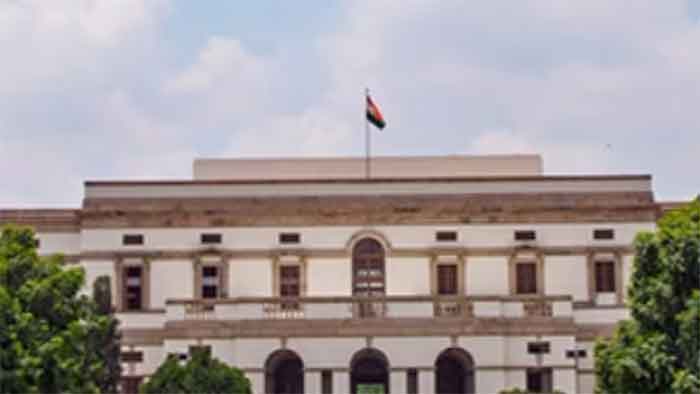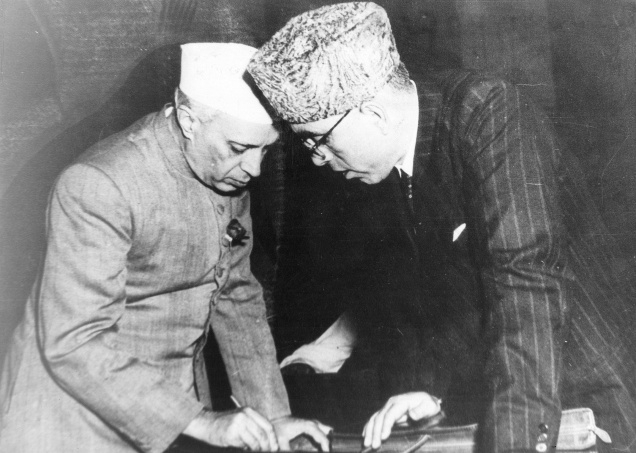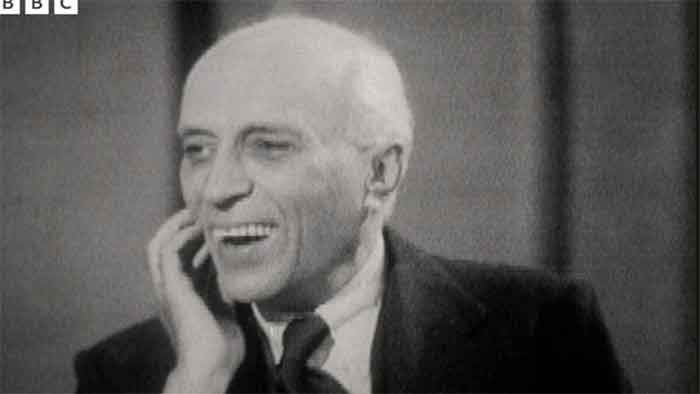
The other day an important BJP leader remarked that Jawaharlal Nehru and other Congress leaders managed to advance the date of independence and accepted country’s partition because they were in a hurry to enjoy fruits of power. This statement of the BJP leader is totally untrue and is not backed by facts and indicates that they lack knowledge of history.
First of all, recorded history bears the testimony that the date of granting freedom to India was advanced by the British government. Originally Britishers decided to leave India in the month of June in 1948. After the announcement of the date of granting independence broad indications started coming that communal violence may break out in various parts of India.
Lord Mountbatten, who was the Viceroy and Governor General of India left for London for consultation. Lord Mountbatten’s biographer Philip Ziegler wrote “Once the principle of partition had been accepted, it was inevitable that communalism would rage freely. The longer the period before the transfer of power, the worse the tension and greater the threat that violence would spread. Two hundred thousand (dead) could have become two million even twenty million.
On June 3 Mountbatten, back from London, announced the Partition plan on All-India Radio. He was followed on the microphone by Nehru, Jinnah and Baldev Singh (speaking for Sikhs). The next morning the viceroy addressed a press conference in the Legislative Assembly building. It was here that he suggested for the first time, that the British would leave not by June 1948 but by the middle of August 1947, that is in less than 10 weeks.
The decision so dramatically to shorten the time frame of the British withdrawal was taken by Mountbatten himself.
Here I will like to mention that neither Congress nor Nehru alone wanted to enjoy the fruits of power (as alleged by the BJP). In fact Gandhiji told Nehru that it is true that it was largely due to the efforts and leadership of the Congress that India has won freedom. But after that India should not be governed by Congress alone. The Congress should seek cooperation of other forces in the light of Gandhi’s advice.
A broad based ministry was constituted by Nehru which besides Congress leaders consisted of two representatives of the world of commerce and one representative of the Sikhs. Three others were lifelong adversaries of the Congress. These were R. K. Shanmukham Chetty, a Madras businessman who possessed one of the best financial minds in India; B. R. Ambedkar, a brilliant legal scholar and an ‘Untouchable’ by the caste; and Shyama Prasad Mookerjee, a leading Bengal politician who belonged (at this time) to the Hindu Mahasabha (later he became the first president of the Jana Sangh- political wing of the RSS). All three had collaborated with the rulers while the Congress men served time in British jails. But now Nehru and his colleagues wisely put aside these differences Gandhi had reminded that ‘freedom comes to India not to the Congress’, urging the formation of a Cabinet that included the ablest men regardless of party affiliation.
The first Cabinet of free India was ecumenical in ways other than the political. Its members came from as many as five religious denominations (with couple of atheists thrown in for good measure), and from all parts of India. There was a woman, Rajkumari Amrit Kaur, as well as two untouchables.
The independent India’s first Ministry had to face so many problems. One of them related to the future of princely states. According to Sir Stafford Cripps, a leading British politician who was member of British mission “The Indian states are governed by the Indian states, if they do not join this union, will remain in exactly the same situation as they are today.
When the British departed the sub-continent they left behind more than 500 distinct pieces of territories.. Two of these were the newly created nations of India and Pakistan, the others comprised the assorted chiefdom and states that made up what was known as princely states.
But the British did not make clear the position of the states. Some rulers began now to luxuriate in wild dreams of independent power in a India of many partitions.
Now, just in time, came the wake up calls. In 1946-47 the president of the All-India States Peoples Conference was Jawaharlal Nehru. His biographer notes that Nehru held ‘strong views on this subject of the States. He detested the feudal autocracy and total suppression of popular feeling and the prospect of these puppet princes …setting themselves up as independent monarchs dove him into intense exasperation. The prospect was encouraged by the officials of the Political department, who led the princes to believe that once the British had left they could, if they so wished, stake their claims to independence.
On their part, the princes disliked and even feared Nehru. Fortunately the Congress had assigned the problem of the states to the pragmatic administrator Vallabhbhai Patel. Through the spring of 1947 Patel threw a series of lunch parties, where he urged his princely guests to help the Congress in framing a new constitution for India. This they could do by sending delegates to the Constituent Assembly whose deliberations had begun in Delhi in December 1946. At the same time Patel wrote to the more influential dewans (chief ministers) urging them to ask their rulers to come to terms with the party which would now rule India.
Several states in Rajasthan, Bikaner included, would share a border with Pakistan; this, and ancient memories of battles with Muslim kings, predisposed them to an early compromise with Congress. But other states in the hinterland were less sure how far Delhi’s writ would run after the British left. Might not the situation revert to that of the eighteenth century, when the peninsula was divided up among dozens of more-or-less sovereign states.
V. P. Menon, who was Sardar patel’s secretary, urged the British government not to support fanciful claims to independence. “Even an inkling that H.M.G would accord independent recognition’ he told London, ‘would make infinitely difficult all attempts to bring the States and the new Dominions together on all vital matters of common concern”.
On July 9 Patel and Nehru both met the viceroy, and asked him ‘what he was going to do to help India in connection with her most pressing problem – relations with the (princely) states’. Mountbatten agreed to make this matter ‘his primary consideration’. Later that same day Gandhi came to meet Mountbatten. As the Viceroy recorded, the Mahatma ‘asked me to do everything in my power to ensure that the British did not leave a legacy of Balkanisation and disruption on the 15th August by encouraging the States to declare their independence…’
Mountbatten was being urged by the Congress trinity to bat for them against the states. This he did most effectively, notably in a speech to the Chamber of Princes delivered on 25th July, for which the viceroy had dacked out in all his finery, rows of military medals pinned upon his chest. He was, recalled an adoring assistant, in full uniform, with an array of orders and decorations calculated to astonish even these practitioners in Princely pomp’.
Mountbatten began by telling the princes that the Indian Independence Act had released ‘the States from all their obligations to the Crown.’ They were now technically independent, or, put another way, rudderless, on their own. The old links were broken, but ‘if nothing can be put in its place, only chaos can result’ – a chaos that ‘will hit the states first’. He advised them to forge relations with the new nation closest to them. As he brutally put it, ‘you cannot run away from the Dominion government which is your neighbour any more than you can run away from the subjects for whose welfare you are responsible’.
The instrument of Accession the princes were being asked to sign would cede away defence – but in any case, said Mountbatten, the states would, by themselves, ‘be cut off from any source of supplies of the up-to-date arms or weapons’. It would cede away external affairs, but the princes could ‘hardly want to go to the expense of having ambassadors or ministers or consuls in all these foreign countries’. And it would also cede away communications, but this was ‘really a means of maintaining the life-blood of the whole sub-continent. The Congress offer, said the viceroy, left the rulers ‘with great internal authority’ while divesting them of matters they could not deal with on their own.
Mountbatten’s talk to the Chamber of Princes was a tour de force. It ranks as the most significant of all his acts in India. It finally persuaded the princes that the British would no longer protect, or patronize them, and that independence for them was a mirage.
Mountbatten had prefaced his speech with personal letters to the more important princes. Afterwards he continued to press them to sign the Instrument of Accession. If they did so before August 15, said the viceroy, he might be able to get them decent terms with the Congress. But if they did not listen, then they might face an ‘explosive situation’ after independence, when the full might of nationalist wrath would turn against them.
Patel and Menon took more than one leaf out of the British book. They played ‘divide and rule’ bringing some princes on side early, unsettling the rest. They played on the child like vanities of the Maharajas allowing them to retain their titles and sometimes giving them new ones . (Thus several maharajas were appointed governors of provinces.) But, like the British in the eighteenth century, they kept their eye firmly on the main change: material advantage. For as Patel told the officials of the states ministry, ‘we do not want their women and their jewellery – we want their land.
A state that wavered on the question of accession was Bhopal. This lay in the central India and had the not unusual combination of a mostly Hindu population and a Muslim ruler. Since 1944 the Nawab of Bhopal had served as chancellor of the Chambers of princes. He was known to be a bitter opponent of the Congress, and correspondingly close to Jinnah and the Muslim league. When, after the war, the British made clear their intention to leave India, the prospect filled in the Nawab with despair. He saw this as ‘one of the greatest, if not the greatest, tragedies that has ever befallen mankind’. For now the ‘States, the Moslems, and the entire mass of people who relied on British justice…suddenly find themselves totally helpless, unorganised and unsupported’. The only course left to the Nawab now to ‘die in the cause of the Moslems of the world’.
In mid-July 1947 Mountbatten wrote to Bhopal, as he had to all other princes, advising him to accede to India. He got a long and self-confessedly ‘sentimental’ letter in reply. Bhopal hinted that he, like Travancore, would declare his independence: in any case he would not attend the meeting of the Chamber of Princes scheduled for 25th July. On the 31st Mountbatten wrote back to Bhopal inviting him once more to sign the Instrument of Accession. He reminded him of what he had said in the speech: that no ruler could ‘run away’ from the dominion closest to him’.
By this time Bhopal had received reports of the meeting of 25th July. He had heard of the terrific impression his old friend had made and also of the increasing tide of accessions by his fellow princes. And so he capitulated, asking only for a small sop of his pride, Would the viceroy press Patel to extend the deadline by ten days, so that his accession would be announced after 15 August instead of before? That, said Bhopal ‘would enable me to sign our death warrant with a clear conscience’, (In the event, Patel said he could not make any exceptions; instead Mountbatten offered Bhopal that if he would sign the Instrument of Accession on 14th August, he would keep it under lock and key and hand it over to Patel only after the 15th).
However, the Rashtriya Swayamsevak Sangh was actively skeptical of this viewpoint. Its sarsanghchalak M. S. Golwalkar was strongly opposed to the idea of a secular state that would not discriminate on the basis of religion. In the India of his conception, the non Hindu people of Hindustan must either adopt Hindu culture and language, must learn and respect and hold in revere the Hindu religion, must entertain no idea but of those of glorification of the Hindu race and culture…in a word they must cease to be foreigners, or may stay in the country, wholly subordinated to the Hindu nation, claiming nothing, deserving no privilege far less any preferential treatment- not even citizens rights”.
L S Herdenia is a veteran journalist
SIGN UP FOR COUNTERCURRENTS DAILY NEWSLETTER












































